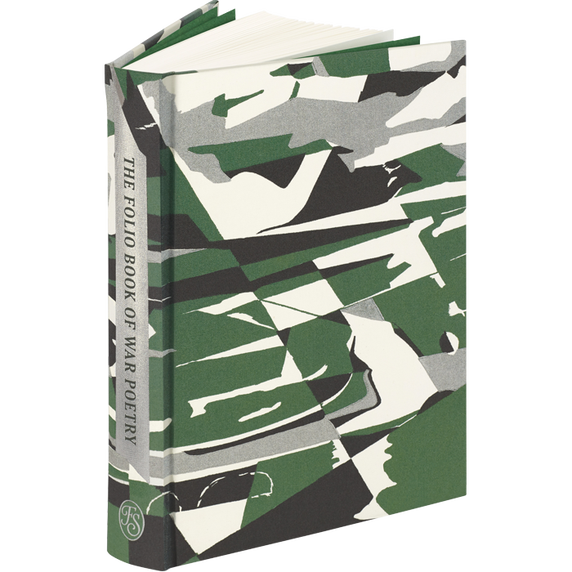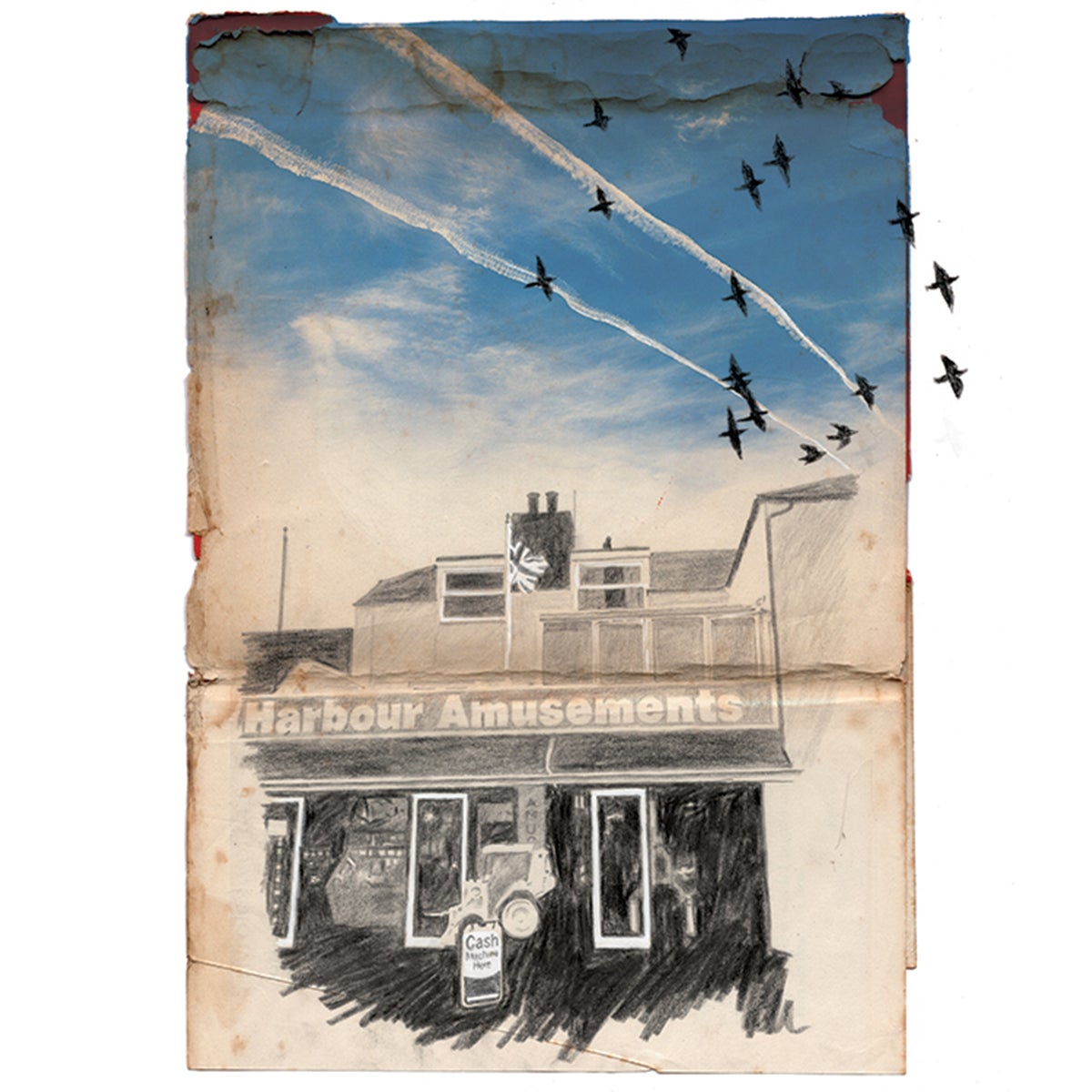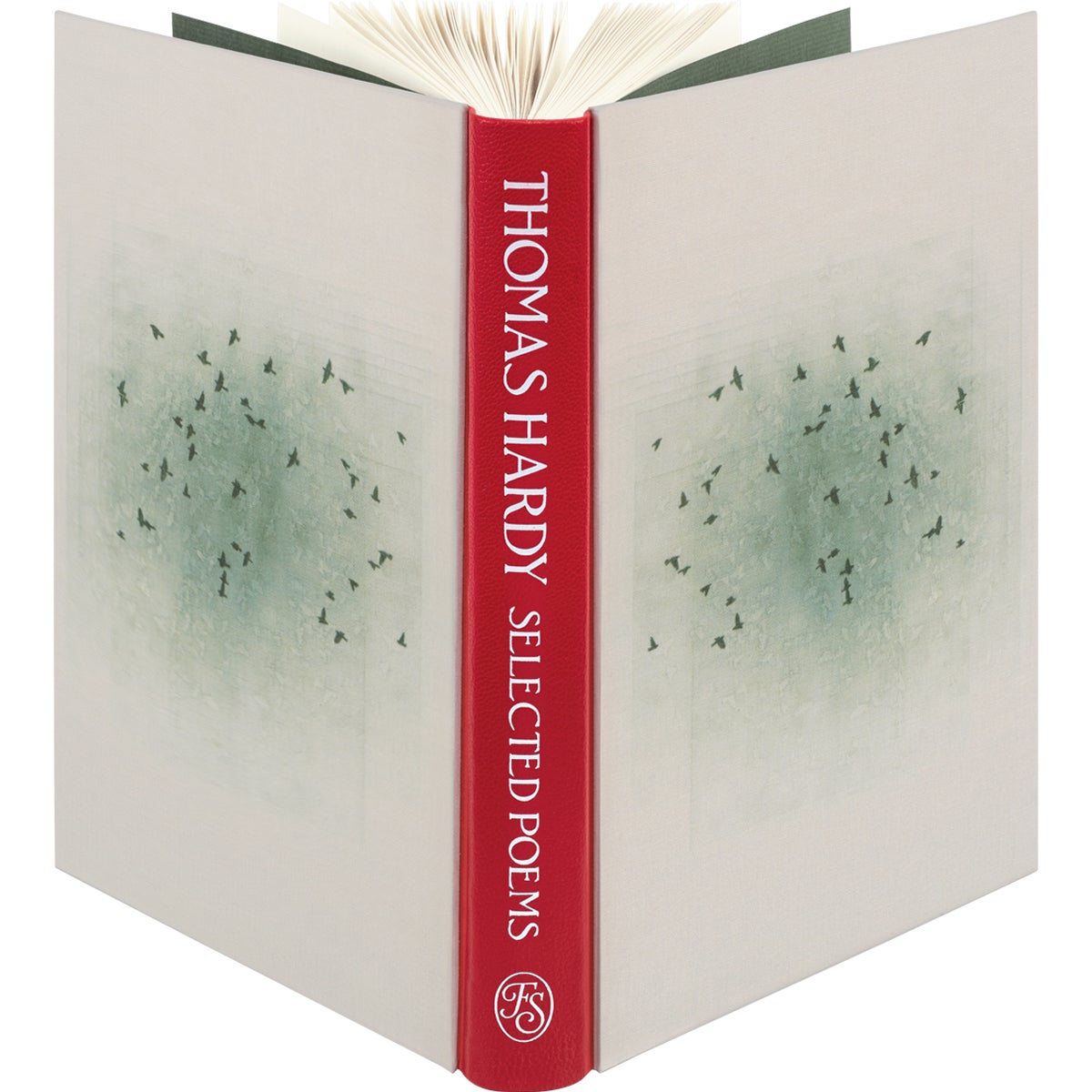
In an exclusive Folio anthology illustrated by Jonathan Lloyd and Neil Gower, former Poet Laureate Andrew Motion gathers together the greatest war poetry, from antiquity to the Cold War and beyond.
Illustrated by Stanley Donwood
Selected and introduced by Robert Macfarlane
Limited to 750 hand-numbered copies
Over 100 of Thomas Hardy’s greatest poems newly selected and introduced by Robert Macfarlane and with more than 30 specially commissioned illustrations by Stanley Donwood. Each copy is numbered by hand and signed by both anthologist and illustrator.
‘Read them aloud and they will echo in both your ear and your memory’
- Robert Macfarlane, from his Introduction
This elegant new limited edition presents over 100 of Hardy's finest verses. Exclusively selected for The Folio Society and superbly introduced by renowned nature writer Robert Macfarlane, it features over 30 haunting illustrations created by Stanley Donwood. Bodoniana-bound with a striking red leather spine and printed cloth sides, each copy is numbered by hand and signed by both anthologist and illustrator.
Limited to 750 hand-numbered copies signed by Robert Macfarlane and Stanley Donwood
109 poems selected and introduced by Robert Macfarlane
Frontispiece, 16 full-colour full-page illustrations and 16 vignettes by Stanley Donwood
Bodoniana-bound with a goatskin leather spine blocked in white foil
Boards covered in Iris cloth and printed with a design by the artist
Limitation page printed letterpress on Hahnemühle Bugra Bütten paper and tipped on by hand
224 pages typeset in Walbaum and printed on Old Mill Stucco Gesso paper
Green Hahnemühle Bugra Bütten endpapers
Green ribbon marker
Book size 10" x 7¼"
Hand-made slipcase covered in green Iris cloth, blind-blocked with a design by the artist, and lined with Hahnemühle Bugra Bütten paper
‘Anyone who knows Hardy only as a novelist knows only half the artist’
- Robert Macfarlane
Renowned as a Victorian novelist, Thomas Hardy is one of the greatest poets in the English language, whose innovative work paved the way for writers as diverse as Robert Frost and Ted Hughes, although his poetry was not published until he was nearly 60. Over the next 30 years he crafted eight collections, containing more than 1,000 poems and addressing everything from the glories of the landscape and the harshness of rural life to the sweetness of love, the bitterness of loss and the reality of war – all in an extraordinary range of metres and forms.
At the very heart of Hardy's poetry – and of this new collection – are the Poems of 1912-1913, a devastating sequence he composed in the wake of the sudden death of his estranged first wife, Emma.
Wessex Poems (1898)
A Meeting with Despair ▪ I Look Into My Glass
Poems of the Past and the Present (1901)
Drummer Hodge ▪ At a Lunar Eclipse ▪ A Broken Appointment ▪ An August Midnight ▪ The Darkling Thrush ▪ The Ruined Maid ▪ The Self-Unseeing
Time’s Laughingstocks (1909)
A Trampwoman’s Tragedy ▪ Shut Out That Moon ▪ In the Night She Came ▪ He Abjures Love ▪ At Casterbridge Fair: The Ballad-Singer ▪ The Dark-Eyed Gentleman
Satires of Circumstance (1914)
Channel Firing ▪ The Convergence of the Twain ▪ Wessex Heights ▪ The Place on the Map ▪ Ah, Are You Digging on My Grave? ▪ Under the Waterfall
Poems of 1912–13
The Going ▪ Your Last Drive ▪ The Walk ▪ Rain on a Grave ▪ I Found Her Out There ▪ Lament ▪ The Haunter ▪ The Voice ▪ His Visitor ▪ A Dream or No ▪ After a Journey ▪ Beeny Cliff ▪ At Castle Boterel ▪ The Phantom Horsewoman ▪ The Spell of the Rose ▪ Where the Picnic Was ▪ Regret Not Me ▪ Seen by the Waits
Moments of Vision (1917)
Moments of Vision ▪ The Voice of Things ▪ At the Wicket-Gate ▪ First Sight of Her and After ▪ The Rival ▪ Heredity ▪ Quid Hic Agis? ▪ On a Midsummer Eve ▪ The Wind Blew Words ▪ The Background and the Figure ▪ Sitting on the Bridge ▪ Where They Lived ▪ Something Tapped ▪ The Oxen ▪ On a Heath ▪ Transformations ▪ The Last Signal ▪ The House of Silence ▪ At Middle-Field Gate in February ▪ Overlooking the River Stour ▪ The Sunshade ▪ During Wind and Rain ▪ Who’s in the Next Room? ▪ The Upper Birch-Leaves ▪ In a Waiting-Room ▪ Old Excursions ▪ The Shadow on the Stone ▪ The Tree and the Lady ▪ In Time of ‘The Breaking of Nations’ ▪ Afterwards
Late Lyrics and Earlier (1922)
Weathers ▪ A Jog-Trot Pair ▪ Going and Staying ▪ A Man Was Drawing Near to Me ▪ A Night in November ▪ Where Three Roads Joined ▪ The Fallow Deer at the Lonely House ▪ The Wedding Morning ▪ Voices from Things Growing in a Churchyard ▪ On the Way ▪ Growth in May ▪ The Master and the Leaves ▪ The Second Night ▪ To a Well-Named Dwelling ▪ The Whitewashed Wall ▪ The Colour
Human Shows (1925)
A Bird-Scene at a Rural Dwelling ▪ Last Week in October ▪ At Rushy-Pond ▪ A Night of Questionings ▪ Life and Death at Sunrise ▪ A Sheep Fair ▪ Snow in the Suburbs ▪ The Prospect ▪ Horses Aboard ▪ Under High-Stoy Hill ▪ Bags of Meat ▪ On Martock Moor ▪ A Hurried Meeting
Winter Words (1928)
The New Dawn’s Business ▪ Proud Songsters ▪ I Am the One ▪ Throwing a Tree ▪ Childhood among the Ferns ▪ The Mongrel ▪ We Field-Women ▪ ‘A Gentleman’s Second-Hand Suit’ ▪ I Looked Back ▪ We Are Getting to the End ▪ He Resolves to Say No More
‘One can read him for years and years and still be surprised’
- Philip Larkin
Author and environmentalist Robert Macfarlane shares Hardy's preoccupations with landscape and memory and is, therefore, uniquely placed to curate this new selection. He has chosen over 100 poems from across all eight volumes of Hardy’s poetry, giving a perfect cross-section of his varied work. In a superb introduction, Macfarlane explores how the uncanny timeless feel of the poetry makes it 'a bitter, beautiful draught to drink at any time' – but one that is particularly resonant as we grapple with the effects of the global pandemic.
‘I have tried to encapsulate the vague air of solitary melancholy I get from Hardy's work’
- Stanley Donwood
Macfarlane’s masterful selection is enhanced by over 30 atmospheric illustrations by his regular collaborator Stanley Donwood, with whom he has published Holloway and Ness – both themselves meditations on landscape. For this limited edition Donwood travelled to Dorset in search of the sites of Hardy's poetry, creating an eerie sequence of pencil sketches and coloured images on scraps of paper, pages torn from yellowing books, old envelopes and even sections of maps. Responding to Hardy's layering of the present and the past, Donwood juxtaposes the modern and the ancient, providing a new way of visualising Hardy’s ‘Wessex’. Binding the scheme together are the birds that he identified as the strongest link between Hardy's world and ours.
The Bodoniana binding style is named for the famous typographer Giovanni Bodoni but is somewhat tricky to describe elegantly – the image here shows the special placement of the spine beneath the boards. We have chosen a gorgeous red leather for the spine, here blocked in white foil. The boards are covered in Iris cloth printed in soft greens with a flight of birds designed by Donwood, perfectly complementing the endpapers, ribbon marker and cloth-covered slipcase.
Thomas Hardy was born in Dorset, England in 1840 and was the eldest son of Thomas and Jemima Hardy. His rural upbringing instilled in him a love of the natural world and this was to combine with an appreciation of the built environment when he was apprenticed to a local architect, aged 16. He spent a brief period working in London as a draftsman before illness meant he had to return home in 1867. Throughout this time, Hardy developed his writing style and his second manuscript, Desperate Remedies (1871), was accepted and published. He wrote short stories and instalments for a tale called A Pair of Blue Eyes while writing further novels, and he was able to work solely as a writer when he left architecture. Wessex was first introduced in Far from the Madding Crowd (1874) and this and subsequent novels established Hardy as a household name. Tess of the d’Urbervilles (1891) and Jude the Obscure (1895) were his last two novels but he continued to write short stories. Between 1895 and his death in 1928, Hardy published eight collections of poetry comprising over 1,000 verses. He is buried in Poets’ Corner in Westminster Abbey.
Robert Macfarlane is a British writer, and a Fellow of Emmanuel College, Cambridge. He is the author of internationally prize-winning and bestselling books about nature, people and place, including Mountains of the Mind (2003), The Wild Places (2007), The Old Ways (2012), Landmarks (2015) and Underland (2019), as well as The Lost Words (2017) and The Lost Spells (2020), children’s books of nature spells created in partnership with the artist Jackie Morris. His collaborations with artist Stanley Donwood include Holloway (2013), Ness (2019) and Thomas Hardy’s Selected Poems (The Folio Society, 2021). His work has been widely adapted for stage, film, television and music. He was made a Fellow of the Royal Society of Literature in 2012, and in 2017 was awarded the EM Forster Prize for Literature by the American Academy of Arts and Letters.
Award-winning artist and author Stanley Donwood, although best known for his association with the band Radiohead, is also acclaimed for his large screen prints, exhibited worldwide, his writings and art installations.


